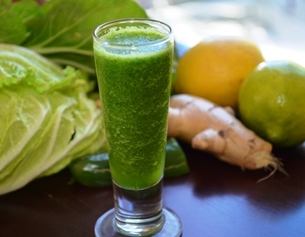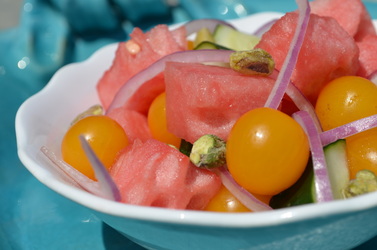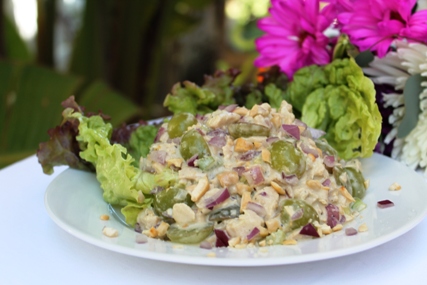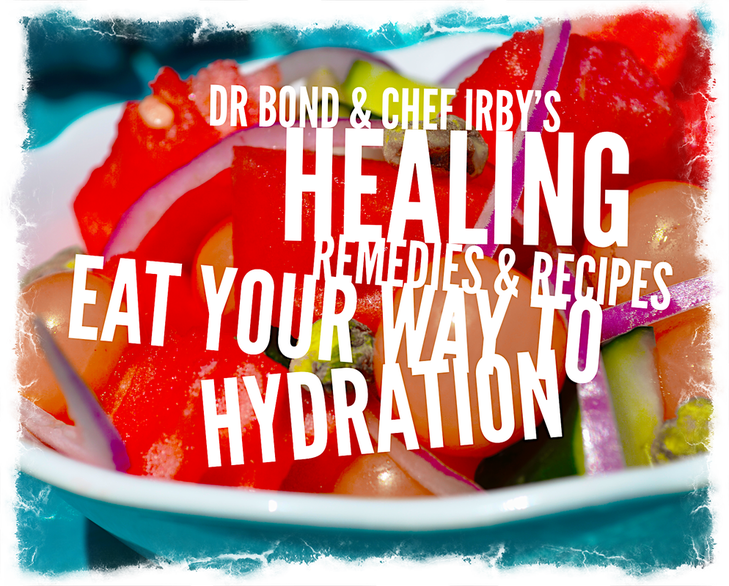Dehydration to Hydration – Remedies and Recipes to Flourish
Did you know? The adult body is made up of, on average, 60 percent water. Water is essential to life. If placed in a survival state, a person could live as much as three weeks without food yet only a matter of days without water.
Water directly impacts every single function and appearance of the human body. Even mild dehyrations can cause depletion of body performance, including cognitive abilities, and as well, increase the aging effects on the body both inside and out.
Think of your body as a living plant. Without sufficient water, for example, a plat at first begins to sag – its inner veins begin to weaken and the plant is unable to hold its shape. Slowly, the leaves begin to wilt and shrivel; the color fades until it reaches a point where it is dry and brittle and is no longer capable of absorbing water. The same is true of our bodies. Without water, the body deteriorates from the inside out, first affecting the inner organs and then our outer organ, the skin.
Effects of Dehydration
A body’s water loss of even 1 to 2 percent can create thirst and food cravings. Left unquenched, dehydration levels increase and fall into 3 categories: Mild, Moderate, and Severe.
Mild Dehydration: defined as five to six percent water loss
Symptoms may include:
*thirst
*achy joints
*weakened vision
*depressed digestion often leading to constipation
*early stages of toxic buildup
Moderate Dehydration: defined as water loss between seven and ten percent
Symptoms may include:
*dry mouth
*dry skin
*feeling sleepy or tired
*headache, confusion
*constipation
*cool, clammy skin
*impaired skill performance, cognitive thinking
*poor circulation
*muscle cramps
Severe Dehydration: defined as water loss of ten percent or more
Symptoms may include:
*all of the above symptoms for both mild and moderate dehydration
*sunken eyes
*crepey skin
*brittle nails
*very poor circulation
*dry, tight, wrinkled skin
*delirium
*fever and chills
*rapid heart rate
*shallow breathing
*extreme rise or fall in blood pressure
*Severe dehydration can lead to collapse and/or coma
Dehydration at all levels can impact kidney function leading to kidney stones, can cause elevated or depressed cholesterol levels, place a strain on the liver, cause joints to “stick” thereby effecting movement and causing joint pain, strain muscle tissue, and cause food cravings.
Causes of Dehydration
*Simply put, not drinking enough water daily
*Diarrhea
*Vomiting
*Sweating
*Medications like diuretics
*Drugs such as antihistamines, blood pressure medications, antipsychotic drugs
*Alcohol abuse
*High altitudes
*Overconsumption of caffeine
Remedies
*Avoid drinking dehydrating beverages such as:
*Alcohol – wine, beer, cocktails (keep alcohol consumption to between 1 and 3 glasses per week or abstain
*Caffeine – consumption should not exceed 400 milligrams per day. The average cup of coffee contains 100 milligrams; the average soda contains 30 to 40 milligrams.
*drinks with high-fructose-corn-syrup (HFCS) and artificial sweeteners such as sodas, sports drinks, and commercial fruit juices
*Avoid foods and packaged food products containing excess sodium
*Do drink hydrating beverages such as:
*filtered water
*distilled water
*coconut water
*naturally flavor-infused water such as with fresh cucumber and mint leaves
*add foods to your daily diet that are high in water content
Ways to Eat Your Water
*Freshly made at-home smoothies (where YOU control the ingredients)
*Fruit Salads
*Lettuce cups and wraps
*Fruit and/or veggie sicles
High Water Content Foods:
*Spinach
*Celery
*Kale
*Watermelon
*Cucumber
*Cantaloupe
*Grapefruit
*Strawberries
*Wild blueberries
*Raspberries
*Cabbage
*Leafy lettuces, including iceberg and romaine
*Cauliflower
*Bell peppers
*Radishes
*Zucchini
*Tomatoes
*Eggplant
*Unsweetened apple sauce
*Apples
*Pineapples
*Kiwi
*Mango
*Red grapes
To calculate how much water you should be drinking daily, allow ½ ounce to 1 ounce for each pound that you weigh. On average, it is recommended that women drink 9 8-ounce glasses of water per day and men drink 13 8-ounce glasses of water per day. Drink more water if you are highly active in physical activities, live in a very hot or dry or humid environment.
Water directly impacts every single function and appearance of the human body. Even mild dehyrations can cause depletion of body performance, including cognitive abilities, and as well, increase the aging effects on the body both inside and out.
Think of your body as a living plant. Without sufficient water, for example, a plat at first begins to sag – its inner veins begin to weaken and the plant is unable to hold its shape. Slowly, the leaves begin to wilt and shrivel; the color fades until it reaches a point where it is dry and brittle and is no longer capable of absorbing water. The same is true of our bodies. Without water, the body deteriorates from the inside out, first affecting the inner organs and then our outer organ, the skin.
Effects of Dehydration
A body’s water loss of even 1 to 2 percent can create thirst and food cravings. Left unquenched, dehydration levels increase and fall into 3 categories: Mild, Moderate, and Severe.
Mild Dehydration: defined as five to six percent water loss
Symptoms may include:
*thirst
*achy joints
*weakened vision
*depressed digestion often leading to constipation
*early stages of toxic buildup
Moderate Dehydration: defined as water loss between seven and ten percent
Symptoms may include:
*dry mouth
*dry skin
*feeling sleepy or tired
*headache, confusion
*constipation
*cool, clammy skin
*impaired skill performance, cognitive thinking
*poor circulation
*muscle cramps
Severe Dehydration: defined as water loss of ten percent or more
Symptoms may include:
*all of the above symptoms for both mild and moderate dehydration
*sunken eyes
*crepey skin
*brittle nails
*very poor circulation
*dry, tight, wrinkled skin
*delirium
*fever and chills
*rapid heart rate
*shallow breathing
*extreme rise or fall in blood pressure
*Severe dehydration can lead to collapse and/or coma
Dehydration at all levels can impact kidney function leading to kidney stones, can cause elevated or depressed cholesterol levels, place a strain on the liver, cause joints to “stick” thereby effecting movement and causing joint pain, strain muscle tissue, and cause food cravings.
Causes of Dehydration
*Simply put, not drinking enough water daily
*Diarrhea
*Vomiting
*Sweating
*Medications like diuretics
*Drugs such as antihistamines, blood pressure medications, antipsychotic drugs
*Alcohol abuse
*High altitudes
*Overconsumption of caffeine
Remedies
*Avoid drinking dehydrating beverages such as:
*Alcohol – wine, beer, cocktails (keep alcohol consumption to between 1 and 3 glasses per week or abstain
*Caffeine – consumption should not exceed 400 milligrams per day. The average cup of coffee contains 100 milligrams; the average soda contains 30 to 40 milligrams.
*drinks with high-fructose-corn-syrup (HFCS) and artificial sweeteners such as sodas, sports drinks, and commercial fruit juices
*Avoid foods and packaged food products containing excess sodium
*Do drink hydrating beverages such as:
*filtered water
*distilled water
*coconut water
*naturally flavor-infused water such as with fresh cucumber and mint leaves
*add foods to your daily diet that are high in water content
Ways to Eat Your Water
*Freshly made at-home smoothies (where YOU control the ingredients)
*Fruit Salads
*Lettuce cups and wraps
*Fruit and/or veggie sicles
High Water Content Foods:
*Spinach
*Celery
*Kale
*Watermelon
*Cucumber
*Cantaloupe
*Grapefruit
*Strawberries
*Wild blueberries
*Raspberries
*Cabbage
*Leafy lettuces, including iceberg and romaine
*Cauliflower
*Bell peppers
*Radishes
*Zucchini
*Tomatoes
*Eggplant
*Unsweetened apple sauce
*Apples
*Pineapples
*Kiwi
*Mango
*Red grapes
To calculate how much water you should be drinking daily, allow ½ ounce to 1 ounce for each pound that you weigh. On average, it is recommended that women drink 9 8-ounce glasses of water per day and men drink 13 8-ounce glasses of water per day. Drink more water if you are highly active in physical activities, live in a very hot or dry or humid environment.
Eating Your Way to Hydration – RECIPE

Hydrating Green Smoothie
Serves 4
1 ¼ cups fresh kale, stalks and all
½ large cucumber, ends trimmed, skin on, seeds left in, roughly chopped
1/3 cup seedless red grapes
½ granny smith apple, roughly chopped
1 stalks celery
1/4 fresh avocado
¼ tablespoon fresh gingerroot
About 10 fresh mint leaves
1/8 teaspoon turmeric
Juice of 1 lemon
Juice of 1 lime
2 cups distilled water
½ teaspoon chia or flaxseed
½ tablespoon manuka honey
¼ teaspoon black sesame seeds
½ tablespoon goji berries
Blend all in a blender and drink 1 cup twice daily. *To preserve fruits and veggies, store them in “green” veggie bags and keep in the refrigerator until next use (preferably use within 1 to 3 days). Veggie bags can be purchased at most local supermarkets and specialty food stores.
Nutrition:
Serving size: 1 cup
Calories: 60
Fat: 0.4g
Saturated fat: 0.0g
Sodium: 21mg
Carbohydrates: 14.7g
Protein: 2.3g
Fiber: 3.1g
*NOTE: This recipe provides 122% of the RDA for vitamin A, 99% vitamin C, and is high in potassium, magnesium, and thiamin
Serves 4
1 ¼ cups fresh kale, stalks and all
½ large cucumber, ends trimmed, skin on, seeds left in, roughly chopped
1/3 cup seedless red grapes
½ granny smith apple, roughly chopped
1 stalks celery
1/4 fresh avocado
¼ tablespoon fresh gingerroot
About 10 fresh mint leaves
1/8 teaspoon turmeric
Juice of 1 lemon
Juice of 1 lime
2 cups distilled water
½ teaspoon chia or flaxseed
½ tablespoon manuka honey
¼ teaspoon black sesame seeds
½ tablespoon goji berries
Blend all in a blender and drink 1 cup twice daily. *To preserve fruits and veggies, store them in “green” veggie bags and keep in the refrigerator until next use (preferably use within 1 to 3 days). Veggie bags can be purchased at most local supermarkets and specialty food stores.
Nutrition:
Serving size: 1 cup
Calories: 60
Fat: 0.4g
Saturated fat: 0.0g
Sodium: 21mg
Carbohydrates: 14.7g
Protein: 2.3g
Fiber: 3.1g
*NOTE: This recipe provides 122% of the RDA for vitamin A, 99% vitamin C, and is high in potassium, magnesium, and thiamin

Light and Luscious Fresh Fruit Salad
Serves 4
Whisk together:
¼ cup apple cider vinegar
1 tablespoon grapeseed oil
Pinch white pepper
Pinch pink Himalayan sea salt
Julienned (thinly sliced) strips of orange zest from one medium orange
Fine zest of one lemon
1 tablespoon minced rosemary
½ tablespoon Manuka honey
Set aside cider vinaigrette.
In a large mixing bowl, toss together each of these:
1 cup watermelon
1 medium grapefruit, outer pith removed, sliced (*see Helpful Hints)
½ cup organic strawberries, green tops removed, sliced in half
½ cup wild or organic blueberries
½ cup organic raspberries
½ organic cucumber, seeds removed, if desired
Pour vinaigrette over fruit and gently toss to coat. Chill in the refrigerator for 20 minutes. Serve.
*Helpful Hints: To supreme fruit means to slice away the outer pith and then using a smaller pairing knife, to slice down the inner side of the pithy membranes. The pith of the fruits has vital nutrients but also has a slightly bitter taste. For recipes such as this one, cut the fruit away from the pithy membrane to maintain the flavor’s integrity. When eating grapefruit for breakfast, as a snack or in smoothies, leave the pith and slice the fruit on the diagonal to eat.
Nutrition:
Serving size: 1 ½ cups
Calories: 106
Fat: 3.9g
Saturated fat: 0.0g
Cholesterol: 0mg
Sodium: 34mg
Potassium: 272mg
Carbohydrates: 18.1g
Fiber: 3.2g
Sugars: 13.0g
Protein: 1.4g
ht:normal'>Nutrition:
Serving size: 1 cup
Calories: 60
Fat: 0.4g
Saturated fat: 0.0g
Sodium: 21mg
Carbohydrates: 14.7g
Protein: 2.3g
Fiber: 3.1g
*NOTE: This recipe provides 122% of the RDA for vitamin A, 99% vitamin C, and is high in potassium, magnesium, and thiamin
Serves 4
Whisk together:
¼ cup apple cider vinegar
1 tablespoon grapeseed oil
Pinch white pepper
Pinch pink Himalayan sea salt
Julienned (thinly sliced) strips of orange zest from one medium orange
Fine zest of one lemon
1 tablespoon minced rosemary
½ tablespoon Manuka honey
Set aside cider vinaigrette.
In a large mixing bowl, toss together each of these:
1 cup watermelon
1 medium grapefruit, outer pith removed, sliced (*see Helpful Hints)
½ cup organic strawberries, green tops removed, sliced in half
½ cup wild or organic blueberries
½ cup organic raspberries
½ organic cucumber, seeds removed, if desired
Pour vinaigrette over fruit and gently toss to coat. Chill in the refrigerator for 20 minutes. Serve.
*Helpful Hints: To supreme fruit means to slice away the outer pith and then using a smaller pairing knife, to slice down the inner side of the pithy membranes. The pith of the fruits has vital nutrients but also has a slightly bitter taste. For recipes such as this one, cut the fruit away from the pithy membrane to maintain the flavor’s integrity. When eating grapefruit for breakfast, as a snack or in smoothies, leave the pith and slice the fruit on the diagonal to eat.
Nutrition:
Serving size: 1 ½ cups
Calories: 106
Fat: 3.9g
Saturated fat: 0.0g
Cholesterol: 0mg
Sodium: 34mg
Potassium: 272mg
Carbohydrates: 18.1g
Fiber: 3.2g
Sugars: 13.0g
Protein: 1.4g
ht:normal'>Nutrition:
Serving size: 1 cup
Calories: 60
Fat: 0.4g
Saturated fat: 0.0g
Sodium: 21mg
Carbohydrates: 14.7g
Protein: 2.3g
Fiber: 3.1g
*NOTE: This recipe provides 122% of the RDA for vitamin A, 99% vitamin C, and is high in potassium, magnesium, and thiamin

Chicken Salad Lettuce Cups
Serves 4
3 4-ounce boneless, skinless chicken breasts
3 tablespoons lemon pepper
¼ cup plus 2 tablespoons water
¾ cup red seedless grapes, sliced in half lengthwise
½ cup diced fresh celery
½ cup diced cashews
½ cup diced red onion
¾ cup vegan mayonnaise
½ teaspoon sea salt
1 teaspoon black pepper
2 tablespoons diced fresh cilantro, basil or dill – your choice!
4 to 8 iceberg lettuce leaves, washed and dried
Season chicken with lemon pepper. Place seasoned chicken in a saute pan with ¼ cup plus 2 tablespoons water and heat over medium to medium-low heat. Cover with lid and poach chicken for about 15 to 20 minutes or until cooked through. Remove from heat and allow to cool about 5 minutes. Chop cooked chicken into 1 inch cubes and place in a large mixing bowl.
Stir in grapes, celery, cashews, red onion, mayonnaise, sea salt, black pepper, and fresh herb of choice (see ingredients for suggestions).
Place 1 or 2 iceberg lettuce leaves in a serving bowl or on a plate. Place 1 cup of chicken salad along center of leaf. Gently fold leaf around chicken salad mixture and enjoy.
Nutrition:
Serving size: 1 cup chicken salad with 2 lettuce leaves
Calories: 240.8
Fat: 7.0g
Carbohydrates: 11.3g
Protein: 15.6g
Fiber: 1.1g
Sodium: 134.5mg
Serves 4
3 4-ounce boneless, skinless chicken breasts
3 tablespoons lemon pepper
¼ cup plus 2 tablespoons water
¾ cup red seedless grapes, sliced in half lengthwise
½ cup diced fresh celery
½ cup diced cashews
½ cup diced red onion
¾ cup vegan mayonnaise
½ teaspoon sea salt
1 teaspoon black pepper
2 tablespoons diced fresh cilantro, basil or dill – your choice!
4 to 8 iceberg lettuce leaves, washed and dried
Season chicken with lemon pepper. Place seasoned chicken in a saute pan with ¼ cup plus 2 tablespoons water and heat over medium to medium-low heat. Cover with lid and poach chicken for about 15 to 20 minutes or until cooked through. Remove from heat and allow to cool about 5 minutes. Chop cooked chicken into 1 inch cubes and place in a large mixing bowl.
Stir in grapes, celery, cashews, red onion, mayonnaise, sea salt, black pepper, and fresh herb of choice (see ingredients for suggestions).
Place 1 or 2 iceberg lettuce leaves in a serving bowl or on a plate. Place 1 cup of chicken salad along center of leaf. Gently fold leaf around chicken salad mixture and enjoy.
Nutrition:
Serving size: 1 cup chicken salad with 2 lettuce leaves
Calories: 240.8
Fat: 7.0g
Carbohydrates: 11.3g
Protein: 15.6g
Fiber: 1.1g
Sodium: 134.5mg
Cauliflower Soup
Serves 4
For cashew cheese:
1 cup raw, unsalted cashews soaked for 4 hours or overnight in enough water to cover
¼ teaspoon sea salt
1 ½ tablespoons apple cider vinegar
1 tablespoon lemon juice (fresh)
For soup:
½ tablespoon olive oil
1 medium yellow onion
3 medium leeks, white part only, chopped
1 head cauliflower, trimmed and roughly chopped
2 cups low sodium vegetable broth
Enough water to cover cauliflower
1/8 teaspoon sea salt
½ teaspoon white pepper
½ teaspoon cumin
1 ½ cups cashew cheese (recipe included)
Fine zest of 1 lemon
1 ½ cups coconut milk plus additional as needed for desired consistency
¼ cup chopped fresh Italian flat-leaf parsley leaves
Make cashew cheese by draining cashews – reserve ¼ cup of the liquid. Puree cashews with the reserved liquid, ¼ teaspoon sea salt, 1 ½ tablespoons apple cider vinegar, and 1 tablespoon lemon juice. Set aside.
In a large stockpot over medium heat, heat oil and add onion and leeks. Saute about 2 minutes. Add cauliflower and saute about 2 minutes. Add vegetable broth, water, salt, pepper, cumin and bring to a gentle boil. Boil for 10 minutes or until cauliflower is tender. Working in batches, puree cauliflower mixture in a blender or food processor. Add 1 cup of the cashew cheese and puree until smooth. Return to stock pot and whisk in lemon and coconut milk. Adjust seasonings as desired, being careful not to go overboard with the sea salt.
Ladle in to desired serving bowls and top with a little fresh parsley. Place any remaining cashew cheese in an airtight container in the refrigerator for up to one week.
Nutrition:
Serving size: about 1 ½ cups
Calories: 256
Fat: 19.8g
Saturated fat: 11.2g
Cholesterol: 0mg
Sodium: 83mg
Potassium: 536mg
Carbohydrates: 18.5g
Fiber: 4.5g
Sugars: 6.2g
Protein: 5.9g
Serves 4
For cashew cheese:
1 cup raw, unsalted cashews soaked for 4 hours or overnight in enough water to cover
¼ teaspoon sea salt
1 ½ tablespoons apple cider vinegar
1 tablespoon lemon juice (fresh)
For soup:
½ tablespoon olive oil
1 medium yellow onion
3 medium leeks, white part only, chopped
1 head cauliflower, trimmed and roughly chopped
2 cups low sodium vegetable broth
Enough water to cover cauliflower
1/8 teaspoon sea salt
½ teaspoon white pepper
½ teaspoon cumin
1 ½ cups cashew cheese (recipe included)
Fine zest of 1 lemon
1 ½ cups coconut milk plus additional as needed for desired consistency
¼ cup chopped fresh Italian flat-leaf parsley leaves
Make cashew cheese by draining cashews – reserve ¼ cup of the liquid. Puree cashews with the reserved liquid, ¼ teaspoon sea salt, 1 ½ tablespoons apple cider vinegar, and 1 tablespoon lemon juice. Set aside.
In a large stockpot over medium heat, heat oil and add onion and leeks. Saute about 2 minutes. Add cauliflower and saute about 2 minutes. Add vegetable broth, water, salt, pepper, cumin and bring to a gentle boil. Boil for 10 minutes or until cauliflower is tender. Working in batches, puree cauliflower mixture in a blender or food processor. Add 1 cup of the cashew cheese and puree until smooth. Return to stock pot and whisk in lemon and coconut milk. Adjust seasonings as desired, being careful not to go overboard with the sea salt.
Ladle in to desired serving bowls and top with a little fresh parsley. Place any remaining cashew cheese in an airtight container in the refrigerator for up to one week.
Nutrition:
Serving size: about 1 ½ cups
Calories: 256
Fat: 19.8g
Saturated fat: 11.2g
Cholesterol: 0mg
Sodium: 83mg
Potassium: 536mg
Carbohydrates: 18.5g
Fiber: 4.5g
Sugars: 6.2g
Protein: 5.9g
Very Berry Blueberry Sickles
Makes 5 each
2 cups frozen blueberries, thawed
¼ cup unsweetened apple juice
2 tablespoons Manuka honey
½ lemon, juiced
1 pinch sea salt
5 3-ounce frozen ice pop molds
Puree all ingredients in a blender and blend until smooth. Pour into the molds and place in the freezer until frozen, about 5 hours or overnight. *Blueberries can be substituted with your favorite berry such as strawberries, raspberries or blackberries or do a ½ and ½.
Nutrition:
Serving size: 1 sicle
Calories: 65
Fat: 0.2g
Saturated fat: 0.0g
Cholesterol: 0mg
Sodium: 49mg
Potassium: 68mg
Carbohydrates: 16.8g
Fiber: 1.4g
Sugars: 14.1g
Protein: 0.5g
Makes 5 each
2 cups frozen blueberries, thawed
¼ cup unsweetened apple juice
2 tablespoons Manuka honey
½ lemon, juiced
1 pinch sea salt
5 3-ounce frozen ice pop molds
Puree all ingredients in a blender and blend until smooth. Pour into the molds and place in the freezer until frozen, about 5 hours or overnight. *Blueberries can be substituted with your favorite berry such as strawberries, raspberries or blackberries or do a ½ and ½.
Nutrition:
Serving size: 1 sicle
Calories: 65
Fat: 0.2g
Saturated fat: 0.0g
Cholesterol: 0mg
Sodium: 49mg
Potassium: 68mg
Carbohydrates: 16.8g
Fiber: 1.4g
Sugars: 14.1g
Protein: 0.5g
Cucumber Mint Sickles
Makes 4
1 handful fresh mint leaves
½ cup water
1 ½ tablespoons Manuka honey
Fine zest of 1 lemon
1 large cucumber, peeled and seeded, diced
Juice of 4 limes
Place all ingredients into a blender or food processor and blend until smooth. Pour into pop molds and freeze for 5 hours or overnight.
Nutrition:
Serving size: 1 sicle
Calories: 51
Fat: 0.3g
Saturated fat: 0.0g
Cholesterol: 0mg
Sodium: 7mg
Potassium: 218mg
Carbohydrates: 13.9g
Fiber: 1.4g
Sugars: 8.5g
Protein: 1.1g
Makes 4
1 handful fresh mint leaves
½ cup water
1 ½ tablespoons Manuka honey
Fine zest of 1 lemon
1 large cucumber, peeled and seeded, diced
Juice of 4 limes
Place all ingredients into a blender or food processor and blend until smooth. Pour into pop molds and freeze for 5 hours or overnight.
Nutrition:
Serving size: 1 sicle
Calories: 51
Fat: 0.3g
Saturated fat: 0.0g
Cholesterol: 0mg
Sodium: 7mg
Potassium: 218mg
Carbohydrates: 13.9g
Fiber: 1.4g
Sugars: 8.5g
Protein: 1.1g
